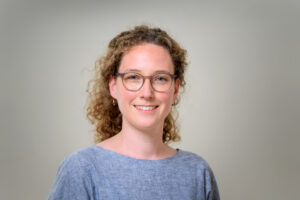Biography
Lara Keuck is a historian and philosopher of the medical sciences. Her aim is to understand what biomedical researchers considered as sound science in different times and contexts, and what this meant for knowing something about a disease.
Studying the history of Alzheimer’s dementia, she traced how and why key assumptions of the biomedical model of this disease shifted throughout the twentieth century. Her publications examine models and classifications of human diseases with a particular interest in uncertainty and interest-relative vagueness.
Lara Keuck was trained in the biomedical sciences; she holds a PhD in history, philosophy and ethics of medicine, and has worked in philosophy and history of science for more than ten years. She embraces the dialogue between disciplines and to “society”, and loves methodological debates. Lara Keuck was a Branco Weiss Fellow of ETH Zurich, and became a member of Die Junge Akademie in 2020.
Education and positions held
- 2015-2021:
- Principal investigator of the junior research group “Learning from Alzheimer’s disease: A history of biomedical models of mental illness”, Humboldt-Universität zu Berlin, Department of History, funded through The Branco Weiss Fellowship – Society in Science, ETH Zürich.
- 2013-2015:
- postdoctoral research scholar, Max Planck Institute for the History of Science, Berlin.
- 2012-2013:
- Postdoctoral Researcher in the project “Dealing Responsibly with Blurred Boundaries”, Humboldt-Universität zu Berlin, Institute of Philosophy.
- 2012:
- Ph.D (Dr. rer. physiol.) in History, Philosophy and Ethics of Medicine; Thesis: “Towards an Epistemology of Medical Classification Systems”, within the realm of a French-German doctoral programme of University Medical Center Mainz and the Department of Philosophy at École normale supérieure, Paris.
- 2008-2012:
- Predoctoral researcher, University Medical Center, Johannes Gutenberg-Universität Mainz, Institute for History, Philosophy and Ethics of Medicine.
- 2011:
- Paris: research stay within the French-German doctoral programme Cultures, Philosophie et Éthique Médicales, École normale supérieure.
- 2003-2008:
- Diplom (equals M.Sc.) in Molecular Biomedicine, Rheinische Friedrich-Wilhelms-Universität Bonn; scholarship of the Studienstiftung des deutschen Volkes
Research Summary
The Max Planck Research Group on “Practices of Validation in the Biomedical Sciences” is opening at the Max Planck Institute for the History of Science in July 2021.
It will elucidate validation practices in the modern biomedical sciences with the aim of historicizing validity as a relational property. What methods and concepts have been used to ascertain the quality of scientific research? How has validity been established, measured, and advocated?
Key publications
- Keil, G., L. Keuck and R. Hauswald (eds, 2017). Vagueness in Psychiatry. Oxford, New York: Oxford University Press.
- Keuck, L. (2018). “Diagnosing Alzheimer’s Disease in Kraepelin’s Clinic, 1909-1912.” History of the Human Sciences (special issue “Psychopathological Fringes: Knowledge making and boundary work in 20th century psychiatry”, edited by N. Henckes, V. Hess and M. Reinholdt) 31:42–64.
- Huber, L. and L. Keuck (2017). “Philosophie der biomedizinischen Wissenschaften”. In: Th. Reydon and S. Lohse (eds.): Grundriss Wissenschaftsphilosophie. Die Philosophien der Einzelwissenschaften. Hamburg: Meiner, 287–318.
- Keuck, L. (2017). “Slicing the Cortex to Study Mental Illness: Alois Alzheimer’s Pictures of Equivalence”. In: T. Mahfoud, S. McLean, N. Rose (eds.): Vital Models. The Making and Use of Models in the Brain Sciences. Cambridge, San Diego, Oxford, London: Progress in Brain Research, 25–51.
- Kutschenko, L.K. (2011). “How to Make Sense of Broadly Applied Medical Classification Systems: Introducing Epistemic Hubs” History and Philosophy of the Life Sciences (special issue “Causation and Disease”, edited by S. Müller-Wille and M. Kronfeldner) 33:583-602.

